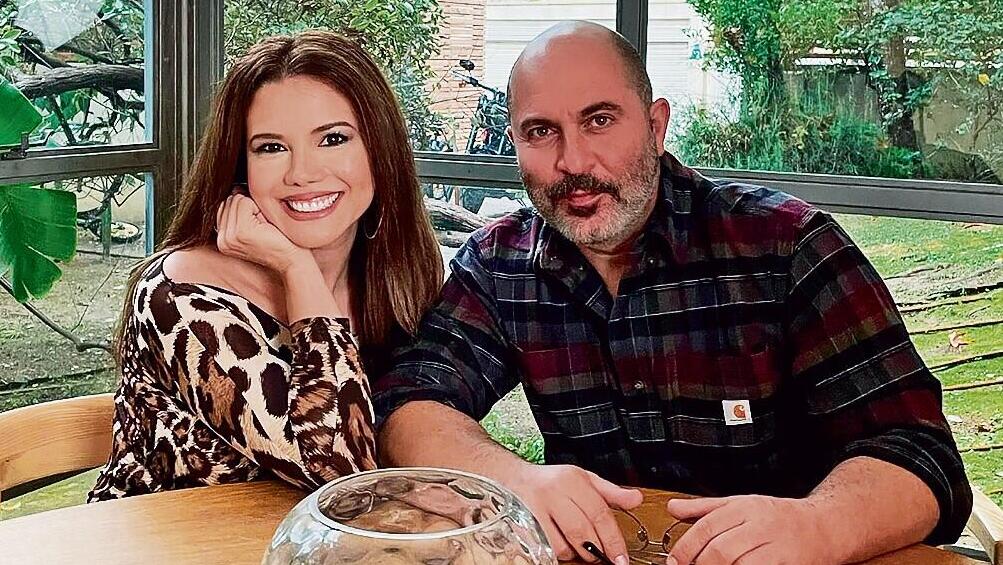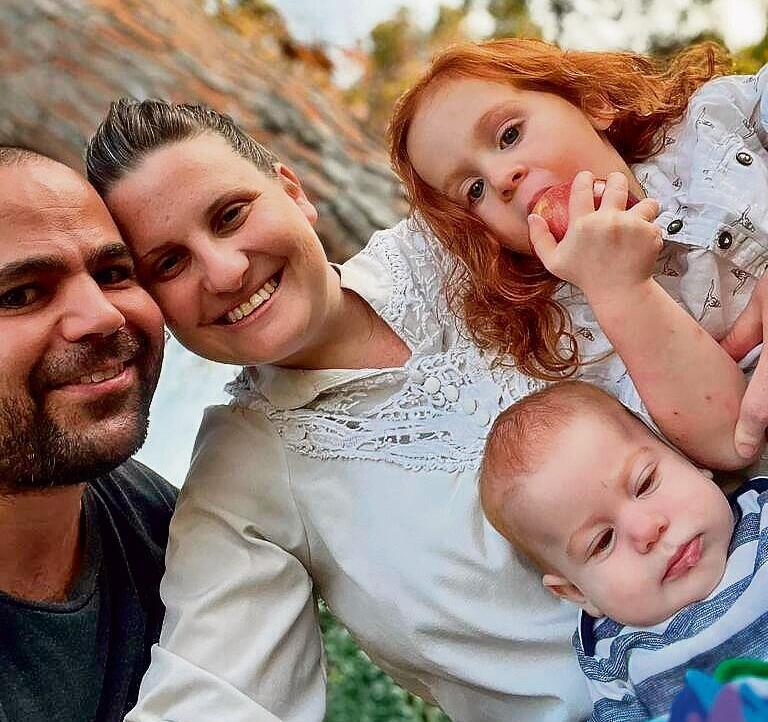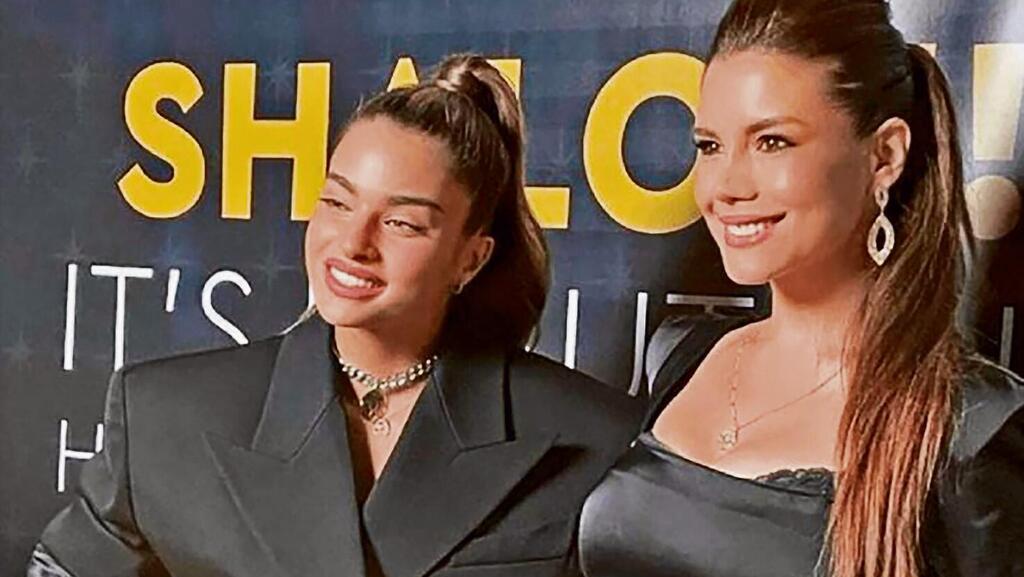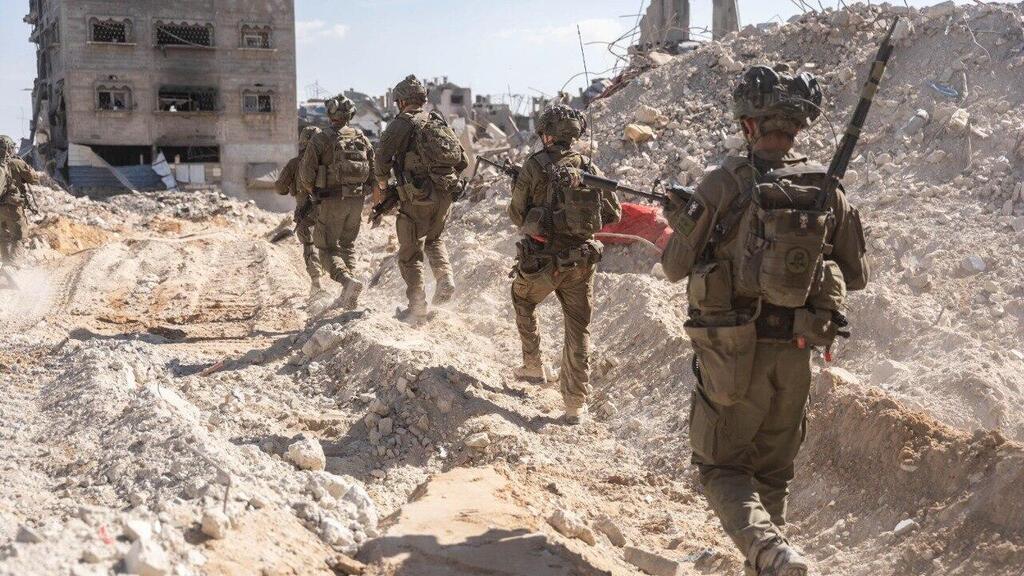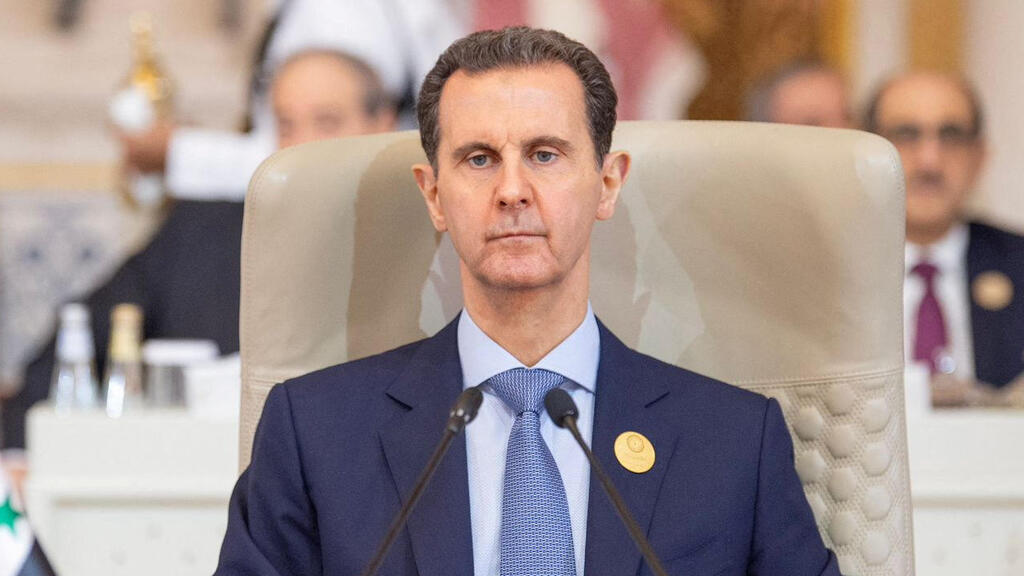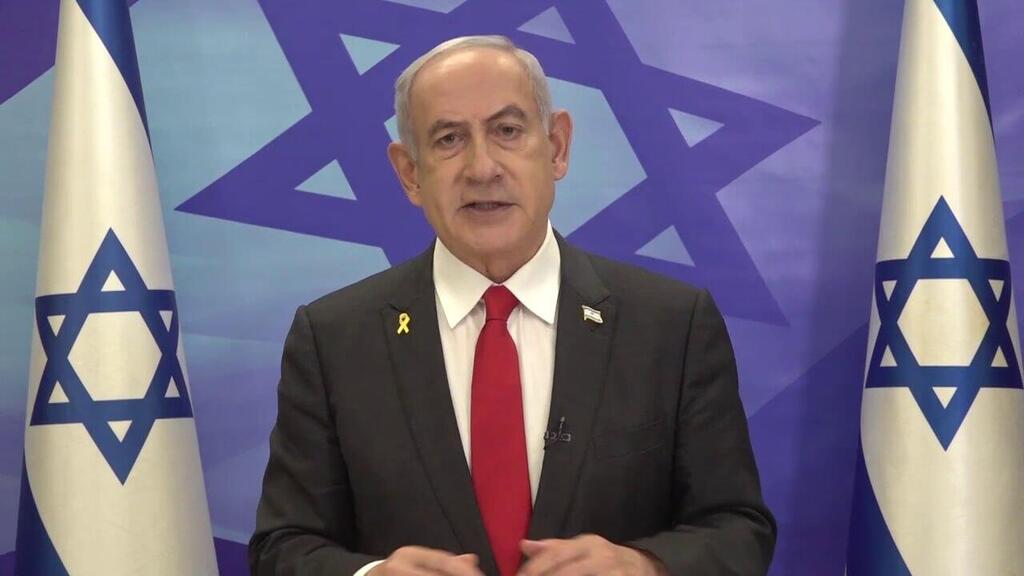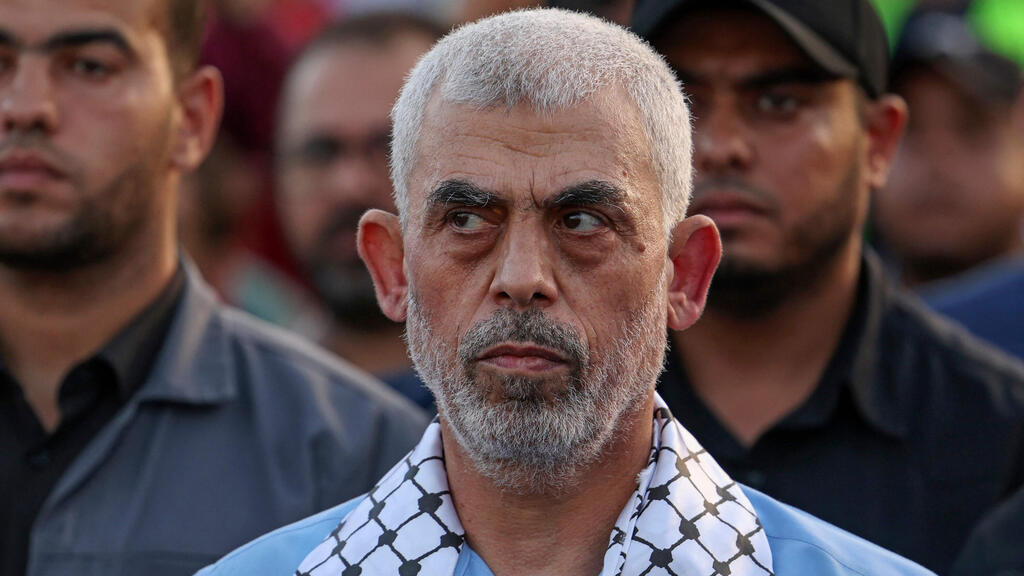Getting your Trinity Audio player ready...
“Let’s start from the end,” I say to veteran Kurdish–Syrian journalist, Hayvi Bouzo who, for fear of the authorities, has moved to Washington. Let’s focus on the here and now. For her Yalla website, each week she interviews Israelis – mainly those who lost family members in the October 7 massacre, but there are also other Israelis she feels it’s important to let the Arab world know about. She’s the only Arab journalist who has made this her life’s mission. The numbers show she has somewhere between 750 thousand and one million followers on Yalla.
With which Israeli did you instantly find common language, someone who evoked empathy and whom you would like to meet again?
Hayvi (in English: Hope) smiles through the screen. “Lior Raz. Definitely. The hero from Fauda. I interviewed him and enjoyed every minute of it. Let me tell you a secret. I watched all four series of Fauda. I didn’t miss a single episode. It’s a fantastic series. I know they’re working on a fifth series.”
“For me, Lior Raz is the ultimate Israeli,” she says. “Smart, honest and pleasant, but hard and straight-talking. He also speaks Arabic, earning him extra points as far as I’m concerned. We sat and chatted in Arabic and the conversation flowed. We’re interested in the same things – the Israeli-Palestinian conflict, relations between Israel and the Arab states, and young people in the Arab world. Lior Raz’s episode on Yalla got lots of views in the Arab world.”
Which Israeli most touched you?
Without hesitating, she answers, “Yifat Ziller, cousin to Yarden Bibas, held hostage in Gaza. It was so hard. I cried through the whole interview as she talked about Shiri, Yarden and their two wonderful little red-haired children.
"I can’t forget Ariel, who was four when kidnapped, and his brother Kfir who was only nine months old. Before the interview, I looked at some pictures and decided I’d be strong, but my conversation with Yifat broke me. I thought of my own two children, Gino (11) and Talia (8). I told my husband Hans that I couldn’t imagine how I’d keep it together if a disaster as horrific as that ever happened to us.”
Bouzo, 41, was born in Damascus into what she describes as an “unusual” family. “In our home,” she says “when Hafez el Assad, Bashar’s father, was in power, and the dictatorship took the liberty of listening in on its citizens, nabbing them off the street, interrogating and torturing them, sometimes to death – my family behaved differently.
"Our home was always open and I always wanted to be a journalist. I’ve been curious about people ever since I can remember, and I fought to break down barriers in the closed environment in which I was raised. At home, I could talk about anything. Outside, I learned to be quiet.”
Weren’t you afraid?
“Obviously. We didn’t take to the streets to demonstrate against the government and we didn’t have political conversations with people we didn’t know we could trust. Amongst ourselves, however, and with close friends we talked about everything.
"I was born in Damascus at a time when the state ran its citizens’ lives by brainwashing them, mainly the young people. This means that each and every citizen was destined to be a tool of the regime, and it continues to this day. “
“People who live in democracies don’t understand the life of a small individual in a dictatorship. I keep thinking about the young people in Syria whose lives are run under enormous fear, and it breaks my heart.
"What would have happened to me if I’d carried on living in Damascus right under the noses of security and intelligence agencies? I’d have either been arrested as I wouldn’t have been able to keep my mouth shut about the regime’s injustices, or I’d have gone underground like lots of my friends did, until they got caught.”
What does “got caught” mean?
“They take you for violent interrogations. The girls, many of whom are virgins, they rape as part of the ’absorption process’ and ruin their lives. And they beat up and torture the men. If they’re lucky, they’ll be released a couple of days later. In other cases, they’ll be transferred to detention and trial, accusing them of God knows what. It’s just terrible.”
The Jewish butcher in Damascus
Bouzo was raised with stories of her parents’ Jewish neighbors. “My father would buy the meat from the Jewish butchers in Damascus - because of the meat’s quality, and the shop’s cleanliness,” she recalls. “They had good very neighborly relations and my mother, who was raised in a Jewish neighborhood of Aleppo, would visit her Jewish neighbors and eat the Jewish food they cooked and took on quite a few of their customs.”
“Everything was very calm and normal and until the Ba’ath party took over, and the Jews in the neighborhood started disappearing. My mother was wandering around in tears knowing she’d never see her Jewish neighbors again. They left everything behind. Very few managed to sell their homes. Some, from what I realized much later, went to the United States, others to the ‘Zionist state’.”
Bouzo also moved to the United States with her family, but the family returned to Syria because “we weren’t afraid.” She started working as a TV presenter for a Syrian state TV channel, relocated to Dubai following a job offer from Orient TV, and returned to Syria to work for El Sham TV, that she describes as “the first, failed, attempt to set up a private TV channel in Syria. We were forced to closed due to government pressure, because we were disrupting them.”
While working at a state radio station in Syria, on one show she mentioned “totally innocuously, that Jerry Seinfeld’s mother was a Jews born in Aleppo. Out of nowhere, I was flooded with phone calls” she says.
“They shouted ‘Shame on you’ and ‘How can you even think of mentioning the Jewish woman?’. They said horrific things about Israel and cursed me. I explained that I hadn’t meant to bring politics into the show, that I was just stating a fact. It was hinted to me that it was Bashar el Assad’s people who had called to scare me. I was fired from the show two days later. Simply because of Jerry Seinfeld’s mother.”
When did you start taking an interest in the Jewish-Arab conflict?
“From a very young age. Around the end of grade school. At our school, they talked about politics a lot, as well as about Jews and the State of Israel.”
What does the State of Israel look like from Syria?
“The Syrians look at Israel with an inferiority complex. On official state-run TV channels, there are no representations of Israel apart from it being an enemy country, soldiers, wars, hatred and hostility. There’s no chance of seeing daily life in Israel or of broadcasting a piece by a foreign journalist visiting Israel giving his impression from the street, like you guys do for Syria.
"The regime in Damascus wants Syrians to hate you. And Iran fans the flames. Even coming across the name ‘Israel’ rather than the ‘Zionist entity’ would be a step forward.”
And the young people?
"They’re afraid to go out to demonstrate. There’s no ‘fighting spirit’ among the young people in Damascus like there is in Tehran.”
I saw pictures of you with Noa Kirel. How was that connection made?
I was at a beauty pageant in Eilat along with former Miss Iraq, Sarah Idan, and another journalist from Bahrain and the cameras were constantly on us.”
Did it bother you?
“Not at all. I just kept wondering how they’d treat an Israeli woman if she were to show up at an event in Damascus. The discrepancy is enormous. Noa is so sweet and lovely. She knows the work. Although interviewing singers isn’t really my style, I enjoyed it as there’s something very genuine and positive about her. It wasn’t a long conversation, but I was surprised by the thousands of responses after it was broadcast. They wouldn’t admit it, but it looks like they know who Noa Kirel is in the Arab world.”
Who was the first Israeli you interviewed?
“It was even before Yalla. While working on Orient, I asked to meet your ambassador, Danny Dannon who responded immediately.”
How was the interview with Danny Dannon received in Syria?
“Ah. That I can’t forget. They called me a traitor. I then knew I had no chance of going to Syria anymore as I’d be tried for treason. It didn’t me bother though, as I knew that they watched the interview despite my being a ‘traitor’.”
Don’t you feel you’re putting your life in danger?
“If they were to get to me, that wouldn’t be good for me. Let’s just say that I live under the illusion that they don’t know exactly where I live or where my studio is.”
Scenes and memories
Thomas Hand, father of Emily who was kidnapped to Gaza and returned, was also interviewed by Bouzo. “It was hard. I wasn’t prepared to deal with the story of the little girl whose mother had died, who was kidnapped, and whose fate was unknown” she says.
“I had to be composed with him during the broadcast. It's not an Israeli audience that identifies with this terrible story. My job is to use the force of the story to convince my audience. They can hit me with thousands of horrific stories on the Palestinian side, but I know that my audience is also shocked by the stories. There are hundreds of TV channels in the Arab world, none of which present the Israeli side. There’s no mention of the hostages or their families.”
Her list of Israeli interviewees is long, but “I deliberately won’t mention their names to an Israeli newspaper, although I do remember every single one” she says. “They’ve included Jewish mothers and Arab fathers whose children had been kidnapped. Making their voices heard in the Arab world seems like a very important task”
What reactions did you get?
Bouzo: “Mainly insults, swearing and cursing. They don’t write me nice things. I understand, but it doesn’t bother me. People in the Arab world haven’t gotten used to looking at Israel objectively. You bring out the fear and very strong emotions, mainly envy.”
She says that Michael Levy talked to her about his dream of bringing back his brother Or, father of three-year-old Almog whose mother Einav was murdered and who has been raised by his grandparents for the past year.
"It’s a very good thing that the world is rid of him. I’m sure the people of Lebanon are happy, although they obviously can’t demonstrate their joy over Nasrallah’s assassination."
“I wake up every morning and think about what I have to do to bring back my brother” he told Bouzo. “I talk, meet people, tell the kidnapping story to remind people, mainly overseas, that there are hostages and that they have families.” This conversation, too, was met with cursing and reminding her of the Gazans’ situation.
Between interviewing hostages’ families, Bouzo also talks to fascinating figures, mainly in the Arab world “to break down the Israeli wall” she explains. “I interviewed a young woman who had fled Egypt, former Secretary of State Mike Pompeo and the son of the Shah of Iran, Reza Pahlavi, following his highly publicized visit to Israel. This interview accrued so many views and garnered so much interest that I requested, and was granted, a second interview to talk about Iran today and Pahlavi’s special relationship with Israel.”
“The more I think about it,” says Bouzo, “if I’d have stayed in Syria, I’d have been dead long ago. The Syrian regime has a lot of beef with me, ever since I wrote on Facebook what the regime was doing in the city of Daraa on the Jordanian border. It was a horrific massacre that started off with arresting children and carried on to chopping off hands and feet during interrogations. They did it in the most brutal manner, along with their partners from Hezbollah in Lebanon.”
“My family and I started getting death threats. My uncle heard from Mukhabarat (Syrian intelligence) people in Damascus that my name appeared on an arrest list and was taken aback as he knew that if I was arrested, my parents and sister weren’t safe either.
"We decided to leave quickly before they caught us. We flew to the UAE, and from there on to the United States. If I’d have missed the flight, I wouldn’t be alive today. After I left, I learned that the Syrian regime had executed journalists like me who had written about the regime’s crimes. I still have nightmares about what could have happened if I would have insisted on staying.”
Bouzo visited Israel for the first time in December and says, “I dream of coming again.” The Arab-Jewish organization, Sharaka brought her to Israel as a special guest and arranged a trip kicking off in Eilat, visiting Jerusalem and Tel Aviv, and ending up on the Israeli-Syrian border, and included visiting a border-adjacent Israeli winery.
What did you feel when you stood by the border and saw the Lebanese and Syrian sides?
“I cried shamelessly. The Israeli side was in full bloom, flourishing. I looked at the other side and knew nothing there was blossoming or there’s no kind of human thriving. All the houses beyond the border are being used as arsenals and covers for Hezbollah.”
A sigh of relief
One stop on Bouzo’s journey getting to know Israel, was at the Erez crossing on the Gaza border. “I talked to Palestinian women at the crossing and asked them what they thought about peace with Israel” she says. “Without exception, and I spoke to at least ten women at the crossing, they said that very much wanted there to be peace. I believe the initiative has to come from the Israeli side - talking about peace with the Palestinians and taking steps toward peace, because you’re the strong side.”
You must be familiar with Netanyahu’s views on peace with the Palestinians
“I observe from the sidelines, and would rather not go into controversial matters in Israel that I don’t know about. I very much respect Netanyahu. He’s a smart and realistic leader. I know that not everyone in Israel likes him, but I stand by what I’m saying: Netanyahu is very suitable for Israel at this difficult time, and he'll also win the next election, because he’d got it.”
Are you in touch with your family in Syria?
“I was last there in 2011, and I dare not go back as I know exactly what awaits me there. For their own safety, I also don’t initiate contact with my family. Every now and then, I get information about them, but I don’t initiate phone calls.
"I feel very sorry for them and for anyone in Syria against their will - and that’s most Syrians. I know I’ll never go back there. I’m married to an American. I have a son and daughter. My life is good and I’m not looking for trouble.”
“As long as Bashar el Assad is in government, under Iran’s thumb, there’s also no chance of changing things in Syria. He’s not a man of peace. He’s a weak leader who the Iranians and Russians are exploiting and doing whatever they want in Syria. That said, there are signs that Assad and the gang around him are totally fed up with the Iranians and are looking for ways of getting them out of influential positions without harming the president’s status.”
Bouzo has been following the chain of assassinations in Lebanon with keen interest. That of Nasrallah fascinates her. “Because of his special persona as a villain serving the Iranian regime through his organization, Hezbollah that lives off exporting drugs,” she explains.
“What can we say about such a ‘freedom fighter’? It’s a very good thing that the world is rid of him. I’m sure the people of Lebanon are happy, although they obviously can’t demonstrate their joy over Nasrallah’s assassination, or those of all the other wicked people.”
Bouzo wishes to stress that she doesn’t regard the destruction of Hezbollah’s leadership as “assassinations”. “They have so much blood on their hands – the blood of citizens of my homeland in Syria, the blood of Lebanese who tried opposing Hezbollah and the blood of Israelis,” she says.
"I see these operations in Lebanon from the beepers injuring Hezbollah activists, then the walkie-talkies and through to making the Hezbollah leadership disappear, all the way up to Nasrallah – as a just war. I’m willing to say out loud to whoever will listen, that they deserved it, and that Israeli struck them in a very sophisticated way. I’m glad that you’re setting Lebanon ablaze to get rid of Hezbollah.”
“I want to tell you and all your readers in Israel how wonderful it was and how happy it made me to see a sigh of relief across Arabic social media. Countries in the Arab world haven’t yet plucked up the courage - as they’re subjects of dictatorships - but I’m sure we’ll soon here cheers of joys for the fate of Hezbollah leaders. We’ll hear them in Syria, Saudi Arabia and mainly in Lebanon.”
“A new process has started here. Mark my words. A new process that needs to be utilized wisely. You need to think together, at the most senior levels, how to redesign the Middle East. There’s much work to be done, and it won’t be easy, but it needs to be done for the people even for the sake of the wavering regimes, and I’m sure you know which regimes I mean.”
Of Yahiya Sinwar’s assassination, she says, “Assassinating a creature as evil as Sinwar is an important step toward freeing the world of the threat of terrorism. His bloody regime has caused the deaths of so many Israelis, and he’s also killed Palestinians - innocent people.
" His assassination conveys a message to anyone seeking to disseminate terror: The regime in Tehran is shaking in its boots and any terrorist organization is feeling the pressure right now. Sinwar’s assassination is a victory for justice and brings the world one step closer to a safer and freer world.”
Is there anything you’d like to tell Israeli readers before wrapping up?
“I’ve started learning Hebrew. It’s really not hard. I already know words beyond ‘shalom’ (hello), ‘todah’ (thank you) and ‘lehitra’ot’ (goodbye). They say the word ‘savlanut’ (patience) is very important for you, but I understand you guys don’t have too much patience.”
Get the Ynetnews app on your smartphone:



